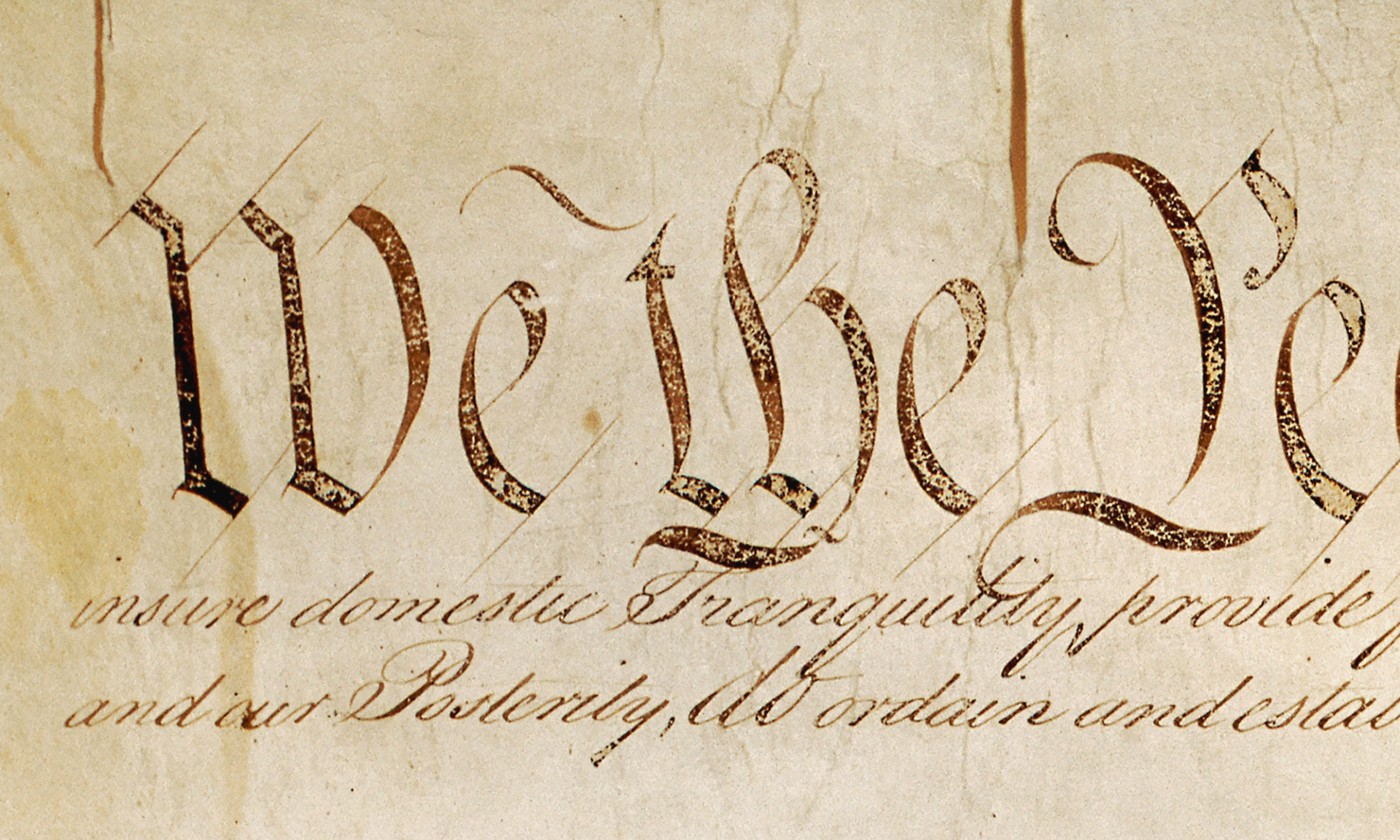FOP Lodge 41 would like to thank Jeremiah Boies with Front Line Law Office for his work on breaking down SB 20-217 for us!
Final version of the Enhance Law Enforcement Integrity Act:
QUALIFIED IMMUNITY / CIVIL LIABILITY
The defense of “qualified immunity” is no longer available to peace officers.
The doctrine of qualified immunity shields an officer from suit in all instances where the plaintiff cannot show: 1) that the conduct violated constitution; and 2) that the unlawfulness of the conduct was clearly established at the time it occurred. Should the plaintiff fail his burden on either prong, the officer is shielded not only from judgement, but from the suit itself.
Under this Act, the qualified immunity defense is gone, and peace officers are personally liable for five percent of any judgement up to $25,000, when the officer’s agency determines that the officer did not act upon a good faith and reasonable belief that their action was lawful. Additionally, if the officer must personally pay a judgment, but the plaintiff cannot collect from the officer (likely because the officer has insufficient means to make payment), the agency or an insurance policy will pay the full amount.
Further, the Act waives all other statutory immunities or limitations on liability, damages and attorney fees. While both the Peace Officers Act and Colorado Governmental Immunity Act currently put caps on liability for claims like these, these waiver exposes the defendants to uncapped liability.
If an officer is convicted of a crime for the act for which a civil action is brought against the officer, then the employer does not need to indemnify the officer. This means that if the officer is convicted of a crime involving an unjustified use-of-force, and the person who the officer used the force against brings a civil lawsuit, the employer can decide not to pay any of the judgment against the officer. The officer would be on the hook for the entire judgment amount.
The statute of limitations for a civil action under this provision is 2 years.
COMPLETE REWRITE OF A PEACE OFFICER’S JUSTIFICATION FOR USING FORCE
Colorado’s law creates a justification for the use of “violence” by a peace officer (we refer to this as a use-of-force). This justification is written at C.R.S. § 18-1-707. This justification means an officer is exempt from criminal liability if the officer meets the justification in the force he used. Under the law before this bill, this justification simply authorizes peace officers to use “reasonable and appropriate physical force” when necessary to arrest or prevent the escape of a someone under arrest, or to defend himself or a third party from unlawful force. A peace officer can use deadly force to arrest or prevent the escape of someone when 1) suspect has used a deadly weapon in a felony; 2) is using a deadly weapon to escape; 3) likely to endanger human life if not apprehended without delay; or 4) to defend against the imminent use of deadly force by the suspect.
This Act completely rewrites the section. The justification states that peace officers must use “nonviolent means” when possible, before resorting to physical force. An officer cannot use physical force unless “nonviolent means would be ineffective.”
Next, the bill outlaws the use of deadly force to apprehend a person suspected of a minor or nonviolent offense; the force must be consistent with the minimization of injury to others; the officers must provide medical aid as soon as practicable; and must notify next of kin when a suspect has sustained death or serious bodily injury.
Most drastically, the Act makes deadly force legal only when “all other means of apprehension are unreasonable” AND the arrest is for a felony conduct that includes the use or threatened use of deadly physical force; AND the suspect poses an immediate threat to the peace officer or another person; AND the force does not create a substantial risk of injury to innocent persons.
The law also includes a “catch-all” provision that allows a justification for the use of deadly force that is worded similar to the Constitutional standard as outlined by the US Supreme Court. That justification states “a peace officer is justified in using deadly force if the peace officer has an objectively reasonable belief that a lesser degree of force is inadequate and the peace officer has objectively reasonable ground to believe, and does believe, that he or another person is in imminent danger of being killed or receiving serious bodily injury.” This language is similar to the Constitutional standard in Graham v. Connor wherein the officer’s use of deadly force must be objectively reasonable, but also has a subjective (from the officer’s perspective) standard as well.
Officers must also announce their intention to use a firearm or other deadly force beforehand, unless it would “unduly place peace officers at risk of injury, would create a risk of death or injury to other persons.”
Also under this Act, chokeholds are completely prohibited. Carotid holds are added to the definition of a chokehold and are also prohibited. This would effectively outlaw any and all holds that peace officers may apply to the neck.
BODY WORN CAMERAS
This law would mandate all law enforcement agencies provide body worn cameras to officers that interact with the public. The officer must activate the camera to record any and all citizen contact. The officers are allowed to deactivate the camera for anything not case related, for long breaks during an incident, or for administrative, tactical, and management discussions. Undercover officers are exempt from body camera requirement.
If the officer fails to activate the camera, it creates a permissive inference that the missing video would have reflected misconduct against the officer and statements that were not recorded because of the officer’s failure to activate the camera presumably inadmissible in court.
If a court, judge, or internal affairs investigation finds an officer intentionally failed to record or deactivated the camera with the intent to conceal unlawful or inappropriate actions or obstruct justice, the POST Board must suspend the officer’s certification for at least one year. In the event this occurs, and the incident resulted in a civilian death, the officer’s certification must be permanently revoked. The agency must also impose discipline.
There are numerous privacy interest exceptions and requirements, but those are placed on the agency rather than on the officers.
POST BOARD
If an officer is convicted of a crime or found civilly liable for an incident involving the unlawful use of force, threatened use of physical force, or failure to intervene in unlawful force, the POST Board must permanently revoke the officer’s certification unless exonerated in court.
POST must create and maintain a database for tracking information related to officer’s 1) untruthfulness 2) repeated failure to comply with training requirements, 3) decertification, and 4) all officers that are terminated for cause.
FORCE AGAINST PROTESTERS
This Act prohibits certain force against “peaceful protestors.” Officers may not: 1) use projectiles to target the head, pelvis, or back; 2) discharge projectiles indiscriminately into a crowd; or 3) use chemical agents before issuing an order to disperse in a manner so that it is heard, and sufficient time and space to allow compliance.
USE OF FORCE IN JAILS/PRISONS
The amendment adds the term “objective” to the reasonableness of the force used by detention officers.
FAILURE TO INTERVENE IN UNJUSTIFIED FORCE
Failure to intervene in another officer’s unjustified use of force is a class 1 misdemeanor. Officers have an affirmative duty to intervene in the unjustified use of force by another officer. If a hearing officer or internal affairs finds an officer failed to intervene under this statute, they must present the case to the District Attorney for determination of criminal charges.
For any failure to intervene cases that result in serious bodily injury or death, the agency must discipline the officer up to and including termination, and the POST Board will permanently decertify the officer.
DEMOGRAPHIC DATA COLLECTION
Officers must collect the demographic data of everyone “contacted” by the police, including the perceived demographic information of the person(s), whether it was traffic related, date, time, location, duration, reason, the specific suspected crime, and the disposition of the stop (warning, citation, arrest) and the charge. The officer must also record whether a search was conducted, and whether it was done under consent, and whether contraband or property was seized, and whether a weapon was unholstered and/or used.
Additionally, business cards must be handed out on all traffic stops.
ATTORNEY GENERAL TO ENFORCE INTEGRITY OF LAW ENFORCEMENT AGENCIES
This provision gives the Attorney General the authority to take civil action against agencies that have a pattern or practice of their employees that deprive citizens of rights, privileges, or immunities. This appears to be similar to the US Department of Justice’s role in “consent decrees” that have been developed with other municipal law enforcement agencies during the past few decades.
ENACTMENT DATES
All the provisions in this bill become law and are in effect on the date of the Governor’s signature, except:
1) The new use-of-force justification in C.R.S. § 18-1-707, which becomes active September 1, 2020, to allow agencies until then to retrain officers, EXCEPT for chokeholds, which are outlawed immediately; and the new provisions for use of deadly force, which also go into effect immediately.
2) POST requirement to maintain a database, which goes into effect January 1, 2022.
3) Body camera requirements begin July 1, 2023.
NOTABLE PROVISIONS REMOVED FROM THE ORIGINAL BILL
Many provisions that were in the initial version of the bill, which were onerous and very detrimental to law enforcement, have been removed from the final version during the amendment process. Those provisions include:
1) The Attorney General investigation unit that investigated all uses of force resulting in death or serious bodily injury and mandated criminal prosecution upon probable cause. This means critical incidents will be under the investigation of the multi-agency critical incident team, and any determination on prosecution of officers will be with the District Attorney. The system of investigating officer-involved-shootings remains the same.
2) There is no prohibition on no-knock warrants in this new law.
3) The section mandating summons be issued rather than a physical arrest for all misdemeanors has been removed. Officers maintain the same discretion in making physical arrest.
4) Officers will not need to get consent from victims or witnesses to record their interaction on body camera; the burden will be on the agencies to protect the privacy of those individuals through redactions.
5) Good-faith exceptions. Originally, the bill prohibited all good-faith exceptions, meaning the officer could not say his actions were taken under the good faith belief they were lawful. This has been replaced with the agency’s determination as to whether the officer acted in good faith, and if the officer acted in good faith, the employer must indemnify the officer from damages.
6) The requirement that the first $250,000 of any judgment come from the public safety budget has been removed.


